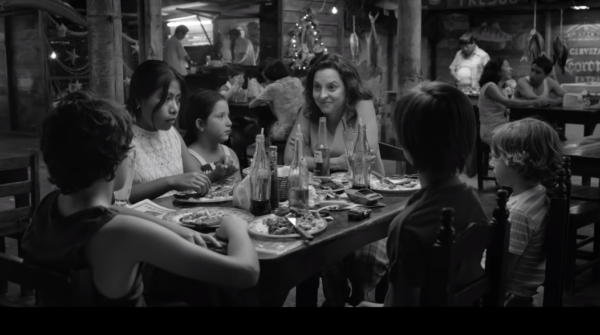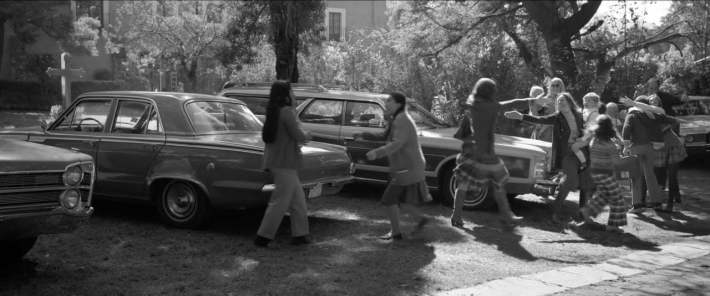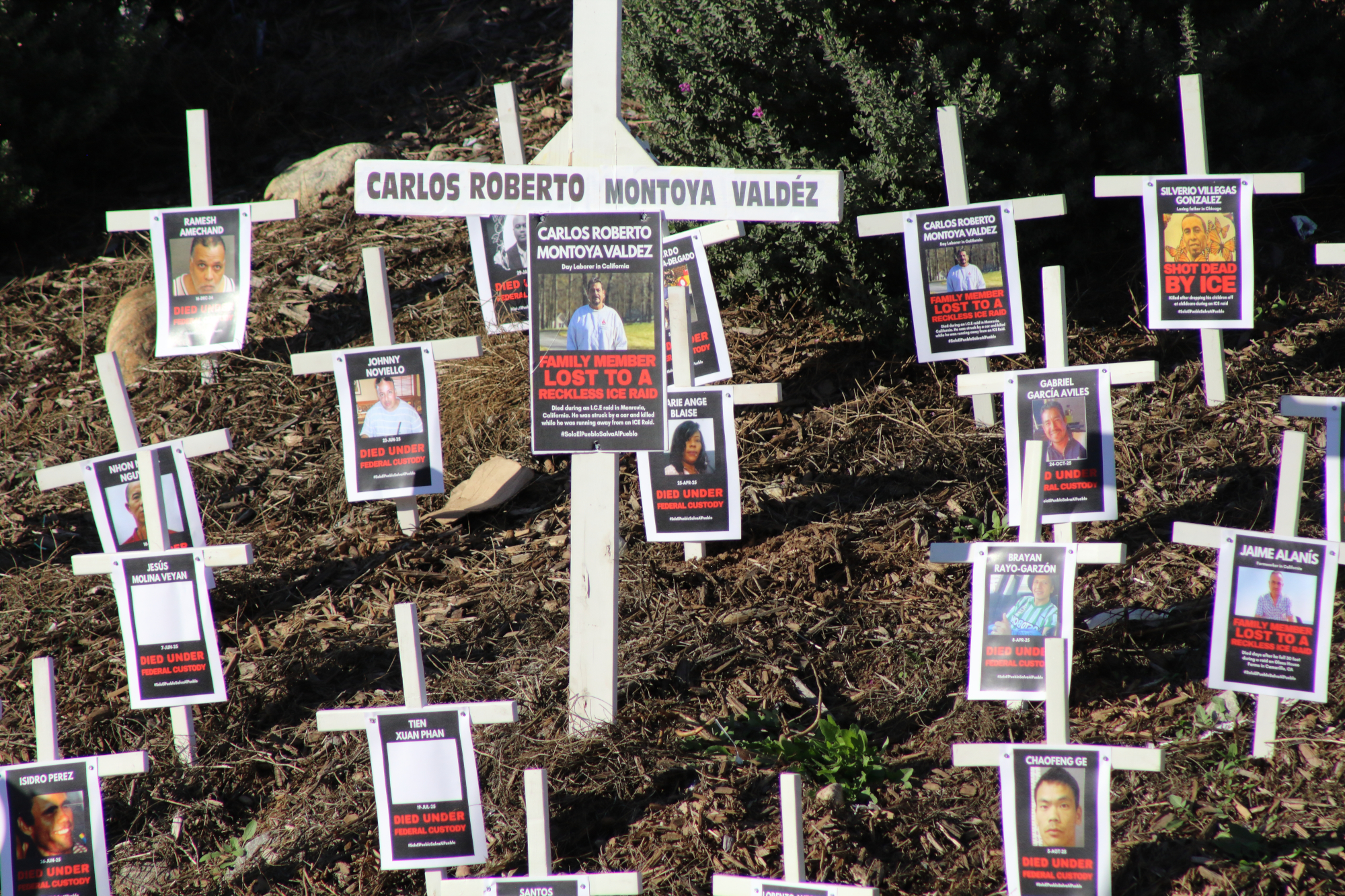[dropcap size=big]W[/dropcap]ealthy classes tend to blind the eye to the humanity of those who take care of their kids, clean their houses, and make their lives easier. That is a major message in Roma, the latest film by Alfonso Cuaron that premieres today on Netflix. The film engages directly with the idea of service work, and how integral those workers are to the domestic sphere of Mexico, as well as more broadly, to Latin America and the north-of-the-border Latin American city that is Los Angeles.
But Roma is largely a personal film. And from Cuaron's perspective, his early Oscars-contender is a personal love letter to the maid who raised him.
Roma is shot so that it feels like Cuaron took these vivid images directly from his mind. In the context of L.A., the film takes on new meaning, even though it takes place in another part of the world. The stories my family and community tell – about working in the domestic sphere, cleaning houses, taking care of kids, making the lives easier for those with means – still resonate with me.
Roma tells me that these people do not go unnoticed, that they are living breathing, complex humans with complicated emotions.
[dropcap size=big]T[/dropcap]he story focuses on Cleo (Yalitza Aparicio), a young woman and maid of indigenous descent that lives with her employer in the Roma barrio of Mexico City. Though it might seem that centering the story around a maid is a tired trope in film, Cleo is a fully three-dimensional character.
She goes out in her spare time. She enjoys her time with the other co-worker. And most importantly, she speaks her native language, Mixteco. This little detail might seem insignificant but her language is her own. One of the children hears Cleo and the other maid speaking Mixteco, which is prevalent in Oaxaca and communities in L.A., and asks what they are saying. But the women don’t tell the child. It is a private conversation.
Their move to the city is probably a result of poverty and poor government support in indigenous communities. Their language adds another layer of communication and autonomy in the servile space. Furthermore, it shows that they continue to keep their culture alive even though they are no longer in their pueblo.

In Roma, the maid is the hero of the story. We come to understand the life of Cleo and her tireless effort and contributions to her employer. Roma says that women like them they play an indispensable role in the function of the middle class in Mexico.
Cuaron shot this film himself, displaying his mastery at photographing long set pieces with lots of action and moving parts. There are moments when the camera feels as though it is a security feed, panning back and forth in the domestic space of the characters. Other times, the camera is unrelenting and indulges in the tragic plot points in the film.
Cuaron has built such technical abilities in filmmaking that pretty much everyone in the industry agrees he is the master at pulling off massive oners. One important sequence is a depiction of a real-life massacre of students and dissidents in central Mexico City, which took place in 1971. There are scenes in the film that are so long, audiences are left in awe at trying to figure out how they are choreographed.

[dropcap size=big]T[/dropcap]he best way to describe the film is cacophonous. Large portions of the action are about the mundanity of the domestic sphere. The white noise of the home is amplified to layout the routine and lives of these characters. In a scene, you might hear the way the children argue, the rustling upstairs, and the sounds of cooking and cleaning. But those soft sounds lure the viewer into a false sense of security.
One of the major surprises of this film is that it is streaming. But the film is making a push to urge viewers to watch it in theaters, as he shot in 65mm and used Dolby sound.
Roma tells the stories of people that are often invisible but they are so integral to the lives of the middle class, in Los Angeles, and in Mexico. Roma immortalizes them. So regardless of all the politics and critique of Roma premiering on Netflix, I’m happy I can watch this movie with my family, so they can see themselves on screen. And know they are not forgotten.







